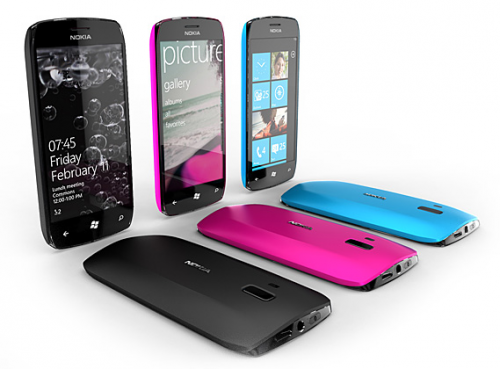One Mission Accomplished: Microsoft’s Deal With Nokia Injects Windows Into The Smartphone Conversation
We don’t know yet whether the much-discussed deal between Nokia and Microsoft will yield the hoped-for results for both companies. But one thing is clear: it has already helped create a perception that there are now three mobile platforms that matter and Windows is one of them. The other two are of course Apple’s iOS […]
We don’t know yet whether the much-discussed deal between Nokia and Microsoft will yield the hoped-for results for both companies. But one thing is clear: it has already helped create a perception that there are now three mobile platforms that matter and Windows is one of them. The other two are of course Apple’s iOS and Android.
Until Friday Windows was regarded as a nice operating system without much developer support and one that might not make it to the mainstream. But given Nokia’s global, although declining, footprint and its promise to work very closely with Microsoft many are now thinking differently about the outlook for Windows Phones. The new narrative is that BlackBerry is now the marginal player whose future is uncertain.

Credit: Nokia
There is speculation, confirmed in part by statements made by Nokia CEO (and former Microsoft employee) Stephen Elop, that Microsoft is directly and indirectly transferring “billions” of dollars in value to Nokia in exchange for the Nokia distribution. The contention is that that Microsoft essentially outbid Google/Android for the partnership. Nokia’s Elop confirmed Android discussions but also expressed concerns that with Android the company would have more trouble differentiating in the market than with Windows.
It’s all vaguely reminiscent of when Microsoft outbid Google for the Verizon mobile “default search” deal. However that didn’t really turn out as Microsoft had hoped. Verizon embraced Android to fight the iPhone and Microsoft didn’t quite get the exposure and mileage out of the relationship it wanted.
The first Windows-Nokia devices are supposed to come out later this year, although the timing is uncertain. (The image above is a rendering of some “concept devices.”)
One of the challenges that Windows Phones have faced, beyond consumer mindshare, is a lack of apps for the new platform. That could change through the Nokia relationship.
If app developers perceive the platform to be viable and important they will likely develop for it. There’s a little bit of perception = reality here. In addition Microsoft has been offering incentives to get Apple and Android developers to port their apps to Windows.
Ultimately, however, handset sales will determine whether this is working for all involved. Until the new Nokia-Windows Phone handsets come out it’s going to be hard to tell much of anything.
Symbian is effectively dead and consumers will soon know that. They’ll probably stop buying Symbian phones unless they’re given away. Windows Phones are likely to see modest results in the interim (they’ve not sold well to date). It’s possible however that the Nokia deal will raise Windows Phones’ profile in general and consumers will take a closer look. Consumer satisfaction with Windows Phones has reportedly been good.
For the time being at least Microsoft has accomplished a major PR goal, to get the industry and developers to pay attention and take Windows Phones seriously.
- ComScore Looks Back At Smartphone Growth In “Mobile Year In Review”
- Live Blogging Google’s ThinkMobile Event
- Nokia Is The New Yahoo: Microsoft OS, Bing To Power Its Smartphones
- Android Closing On BlackBerry As Verizon iPhone Launch Approaches
- ComScore Looks Back At Smartphone Growth In “Mobile Year In Review”
- Google Will Make $10 Per Android User In 2012: Report
Contributing authors are invited to create content for Search Engine Land and are chosen for their expertise and contribution to the search community. Our contributors work under the oversight of the editorial staff and contributions are checked for quality and relevance to our readers. The opinions they express are their own.
Related stories